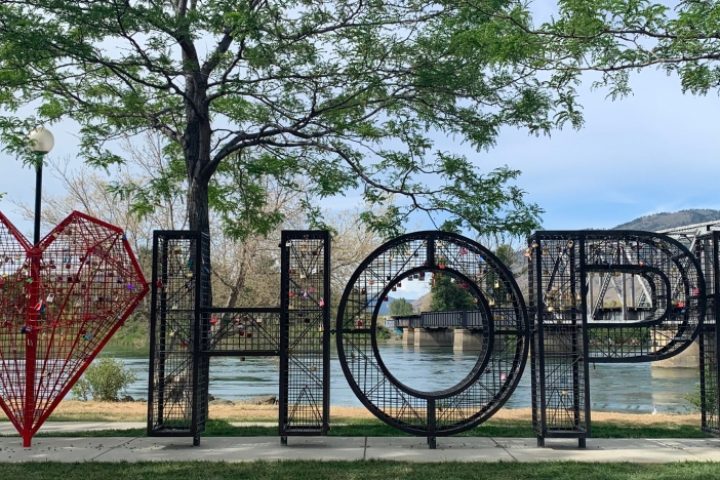Sermons from 2020 (Page 2)
Your Son will Live
John 4:43-54
At the end of his Gospel, John tells us that he has written his masterpiece so that ““you may believe that Jesus is the Christ, the Son of God, and by believing you may have life in his name” (John 20:31). In these early chapters of John, we have seen several people come to genuinely believe in Jesus. His mother and disciples in chapter 2 and the Samaritan woman and the Samaritan townspeople in chapter 4. This week, we see Jesus, the Word, speak but a word (actually 5 words) to a desperate father, and the question is – will this man genuinely believe Jesus’ words or not? Join our livestream this week as we explore what genuine faith in Jesus, the Word, looks like.
Communion
At the end of Sunday’s service we will again take communion “together” while apart. I invite you to prepare elements ahead of time which represent the body and blood of Jesus (the elements do not need to be special). If you attend Mornings Together, we will serve pre-packaged elements to you.
What is Love?
1 Corinthians 13
What is Love? It’s a question many ask, but few find an answer that will sustain them through all the messy realities of life. Paul’s words to the Corinthian church are that answer because Paul wrote them to a church who did not love each other. And although we often confine these words to areas where we feel love (reading them at weddings or hanging them in our family room), they actually have a much broader scope. Come join us as we discover (or rediscover) the Love that is big enough for any situation!
The Woman Who Became a Well
John 4:27-45
“How beautiful are the feet of those who preach the good news” (Is 52:7). Evangelism. Sometimes we hear that word and immediately we cringe. Unfortunately the word is heard negatively these days. But, we shouldn’t cringe with this word, for evangelizing is simply “good-news-izing,” telling people in word and deed the amazingly wonderful good news of Jesus. This is exactly what the woman at the well did. She met Jesus, was loved by him, then turned around and loved her neighbors by sharing the amazingly wonderful good news. What can we learn about this essential element of our faith from this woman at the well who became a well? Join our live-stream this Sunday to complete our studies in this profound scene.
Worship in Spirit and Truth
John 4:19-26
This Sunday we will enter back into John, and enter back into the Samaritan woman at the well scene. Near the end of the conversation with Jesus, the woman asks about worship. Jesus has just told the woman her story, exposing the skeletons in her closet. He does this not to shame her but to show her that he loves her regardless of her skeletons. This causes the woman to want to worship. Jesus then explains what authentic worship in spirit and truth means. Since we are designed to worship, this text is fundamental to what it means to be human. Join the live-stream this Sunday to explore this important theme.
Body Life
1 Thessalonians 5:12-28
Christians are not just individuals in relation to God but part of God’s family. We belong to a community that stretches through time and space: one holy, catholic and apostolic church. We should also belong to a local group of God’s people, a local church. Paul wrote his letters to specific communities or their leaders. In the final section of 1 Thessalonians he gives some instruction for the believers meeting together as a gathered community. At PBCC we are unable to gather in person, but are seeking to still be a gathered community through livestreamed services and Zoom meetings. We are seeking to maintain Body Life as a local expression of the Body of Christ.
Peace and Security
1 Thessalonians 5:1-11
The coronavirus has shaken people’s sense of peace and security, arousing fear and uncertainty. Some have asked if the pandemic is a sign of the End Times. And now the fires that rage all around us have turned the sun into darkness and the moon into blood. Is the Day of the Lord upon us? The Thessalonian Christians were wondering about “times and dates” of the end and were worried about how they would fare. What word of comfort does Paul give them? And how should we live today in such unsettling times?
The Communion of Saints
1 Thessalonians 4:13-18
The pandemic has brought months of enforced isolation. Loved ones have been dying in hospitals and nursing homes, isolated from family and friends, unable to feel a comforting touch as they pass. These family and friends are themselves isolated in their grief, unable to receive visitors to wrap them in a comforting hug. News had reached Paul that some Christians in Thessalonica had died, probably due to persecution. Unable to be present with those grieving to provide comfort, he wrote a paragraph in his letter to them (1 Thessalonians). This paragraph has prompted much speculation about end-times, including the supposed Rapture. But Paul intended it for comfort not speculation. He ends the paragraph, “Comfort one another with these words.”
Life Together
1 Thessalonians 4:1-12
A Life Pleasing to God (1 Thess 4:1-12)
Being a Christian is not just about believing the right things about Jesus. It is about embarking on a lifelong journey of learning how to live a life that is pleasing to God, a life in which we are transformed into Christ-likeness through the Spirit whom God has put within us. We resume our earlier series in 1 Thessalonians. In the final two chapters Paul gives remedial instruction about several matters on which the young church is confused. In this Sunday’s text (4:1-12) he addresses sexuality and life together. A Christian sexual ethic presupposes spiritual formation. Life together as Christian community presupposes philadelphia, brotherly and sisterly love for one another. These are both hot-button topics today. Sadly the church often seems more conformed to the pattern of this world, rather than transformed by the renewing power of God in Christ through his Spirit.
A Future to Die For
Isaiah 65:17-25
In our four-part series Comfort O Comfort My People we have gone through three steps: First, we received God’s word of comfort (Isa 40:1-11). On the second week, we drew near to God to lament and listen (Isa 49:1-6). Last week we caught a vision for the blessings we receive in doing acts of justice (Isa 58:1-14). To conclude our series, the prophet strengthens our hope and stirs our imagination for a future to die for—in the words of Paul, “an eternal weight of glory” beyond all comparison” (2 Cor 4:17). My hope is that when your children or friends ask you what heaven is like, you’ll be able to reframe their question and light their hearts on fire with a vision of a new earth, which is crammed with the life of heaven.
Doing Justice, the Pathway to JOY
Isaiah 58:1-14
Our text this week opens with a heated exchange between God and his people. The people are disgruntled because they have been zealous in their ritual observances, but find that God no pays absolutely no attention. “Why do we fast, but you do not see?” Sound familiar? In response, God sounds an alarm from heaven, as if this is a life and death matter, therefore we better get it right. There is gaping disconnect between their “religion” and their relationships, an insidious hypocrisy that perverts righteousness for profit and destroys lives. In relentless severity God exposes their “religion” for what it really is. What happens next is not what we would expect. Instead of thundering down judgment, God shows them the road home and the manifold blessings that pour forth when his people join him in doing the holy work of justice. Read his appeal (vv.6-14) out load before Sunday and allow the repetitive cadences to wash over your soul with increasing intensity. This is God’s “I have a dream!” speech. May it stir our hearts and awaken us from sleep to “ride on the heights of the earth” (58:14). After the message we will partake of the Lord’s table together. So have the elements ready before we start. The love of Christ be with you all.
Draw Near, Lament and Listen
Isaiah 49:1-13
In the first message (Isaiah 40:1-11) of our series, “Comfort O Comfort My People,” God gave voice to his unshakable commitment to rescue his people from exile and, in so doing, set in motion the salvation of the whole world. This week the good news will continue, but to embrace it fully we will have to learn to do what our culture fears doing—to lament. The reason they are afraid, suggests Tom Wright, “is because it seems to be afraid of the fear itself, frightened that even to name grief will be to collapse forever. We have keep going, we tell ourselves, we have to be strong. Strong, yes. Strong like Jesus who wept at the tomb of his friend. Strong like the Spirit who raised Jesus from the dead and will give life to our mortal bodies too — but who, right now, is pleading for us with groanings too deep for words.” If we embrace the biblical pattern of lament in its bold honesty and audacious trust, we will discover as the psalmists, prophets and Jesus found, hidden treasures of God’s presence that surpass understanding.
Receive God’s Word of Comfort
Isaiah 40:1-2, 27-31, 43:1-7
The pandemic continues unabated and it’s not going anywhere soon. For many us, it is getting personal, as the virus has infected co-workers, friends and/or family members. Along with increasing human, economic and social costs, many are experiencing a crisis in their faith. As Tom Wright suggests, “Tears, locked doors and doubt…sum up a lot of where we are globally.” Living lives in fear and isolation erodes our faith, darkens our hope and paralyzes our love. The length and severity of the pandemic would have shaken my soul, had I not been teaching a course on Isaiah 40-66 for the last 25 weeks. The prophet’s words address the greatest disaster in the Hebrew scriptures, the Babylonian exile. In midst of unending darkness and despair, God’s words blaze with light, comfort, healing and hope. As we immersed ourselves in Isaiah’s oratorio, we experienced a renewal of our faith, a strengthening of our hope and a new flame for our love. For the next four weeks we will be exploring significant themes in these chapters in the hope of giving you a prophetic imagination to see how God is at work in the midst of the darkness.



